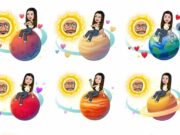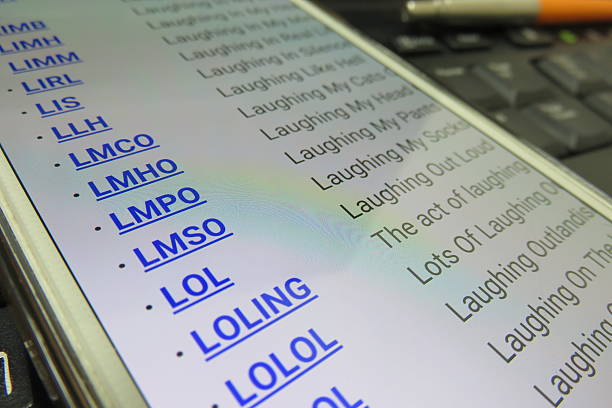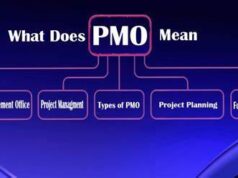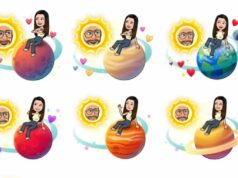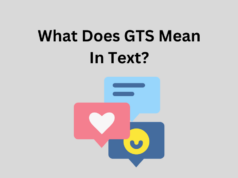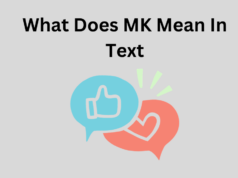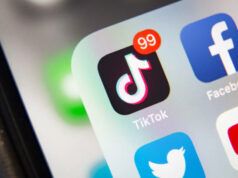What does DTB mean? In today’s world, it seems like text slang is always evolving. With all the nonverbal communication going on between messages sent via smartphones and computers, it’s important to know what abbreviations and acronyms stand for. One of the most popular yet confusing acronyms out there is DTB. If you’re wondering what does DTB mean—or if you’ve seen it used in text messages and never bothered to ask—this blog post will provide all the information you need. Read on to learn more about what does DTB mean when texting and how you can use it in your own conversations.
The Different Meanings of DTB
DTB can mean a lot of things when used in text speak. It could be an acronym for “down to business,” “don’t text back,” or “delete this conversation.” It could also be a warning to not continue texts with someone because they are boring or a request to send nudes.
How to Use DTB in a Text?
DTB, or “Don’t Text Back,” is a new way to communicate with friends and family. It’s simple: when you don’t want to text someone back, just type “DTB” instead of a response.
If you’re wondering how to use DTB in a text, it’s easy! Just type “DTB” instead of sending a reply. This will let the person know that you don’t want to text them back.
There are many reasons why you might want to use DTB in a text. Maybe you’re busy and can’t respond right away. Or, maybe the person is sending you too many texts and you need a break. Whatever the reason, DTB is a great way to let people know that you don’t want to text them back without being rude or ignoring them entirely.
So next time someone sends you a text that you don’t want to reply to, remember to DTB!
Examples of DTB in a Text
There are a few different ways that you can use DTB in a text. Here are some examples:
DTB = Don’t Text Back
This is probably the most common way that DTB is used. When someone sends you a text and you don’t want to reply, you can simply type DTB in your response. This lets the person know that you’re not interested in continuing the conversation.
DTB = Do the Math
This is another common usage of DTB. When someone asks you a question that requires some basic math skills, you can reply with DTB. This lets them know that they need to do the math themselves instead of asking you to do it for them.
DTB = Deal with the Boss
If someone is giving you a hard time or demanding too much from you, you can tell them to DTB. This means that they need to take their problem up with your boss instead of bugging you about it.
When Should You Use DTB?
We understand what does DTB mean. Now, you should know where you can use these terms. You might want to use DTB in a text message in a few different instances. If you plan on going out together or doing something specific, you can use DTB to ask if the person is available. For example, “Hey, do you want to go get coffee tomorrow? I’m free at 10 AM.”
You can also use it simply as a way of saying, “let’s hang out” without making any specific plans. In this case, it might be more of an open-ended invite: “I’m feeling bored, DTB?” Either way, DTB is a great way to ask someone if they want to spend time with you without being too forward.
What Does HMU Mean And Where Can You Use It?
If you’ve ever sent a text message, chances are you’ve come across the acronym HMU. But what does HMU mean?
HMU stands for “hit me up.” It’s a casual way of saying that you want someone to contact you, usually for the purpose of hanging out or chatting.
You can use HMU in a variety of situations. For example, you might text a friend and say “HMU when you’re free” to let them know that you’d like to catch up. Or, if you see someone post something interesting online, you might comment, “HMU if you want to chat about it.”
In general, HMU is just a friendly way to reach out to someone. So next time you’re not sure what to say in a text, remember that HMU is always an option!
Some other slang that you can use while chatting online
DTB is an initialism that stands for “down to business.” It’s a phrase people often use when they want to get started on something or get down to the nitty-gritty.
Some other popular slang terms you may see while chatting online include:
AFK
AFK: Away from the keyboard. This is typically used when someone needs to step away from their computer for a moment.
BRB
BRB: Be right back. Similar to AFK, this term is used when someone needs to step away from their computer for a short period of time.
LOL
LOL: Laugh out loud. This is a commonly used acronym that means you found something funny.
IMO/IMHO
IMO/IMHO: In my opinion/in my humble opinion. These acronyms are typically used before offering up an opinion on something in order to make it clear that it’s just your opinion and not fact.
IRL
IRL: In real life. This term is often used in online chat rooms or forums to differentiate between what’s happening online and in the physical world.
FTW
FTW: For the win. This is typically used when something or someone has done something great, and it’s a fun way to express excitement and enthusiasm.
DM
DM: Direct message. This is a private message that you send to someone directly instead of posting it on a public forum or messaging board.
SMH
SMH: Shaking my head. This is often used to express disbelief or disappointment in something.
ASAP
ASAP: As soon as possible. This is a way of emphasizing that you need something done quickly.
TBH
TBH: To be honest. This is a way of adding emphasis to an opinion or statement that you make.
YL
YL: Young lady. This is a term of endearment that is often used to address someone in a respectful way.
TY
TY: Thank you. This is a shorthand way of expressing your gratitude for something.
WTF
WTF: What the f***? This is usually used as an expression of surprise or confusion.
SOML
SOML: Story of my life. This is a phrase used to express that something has happened to you many times before, and it’s getting old.
GTG
GTG: Got to go. This is typically used when you need to end a conversation or leave a chatroom.
NBD
NBD: No big deal. This is used when something isn’t a big problem and doesn’t need to be dealt with urgently.
FMU
FMU: F*** me up. This is usually used when you’re in need of a pick-me-up or something exciting to do.
BTW
BTW: By the way. This is a way of introducing an unrelated topic or point into a conversation.
NVM
NVM: Nevermind. This is typically used when something is no longer relevant or necessary to discuss.
TTYL
TTYL: Talk to you later. This is a way of saying goodbye in an online chatroom or forum.
These are just some of the many slang terms you may encounter while chatting online. It’s important to remember that some terms may be more generally accepted than others, so it’s best to check with your conversation partner before using any of these acronyms or initialisms.
Some FAQs
Q: What is an initialism?
An initialism is an abbreviation that stands for a word or phrase. Online slang typically uses initialisms to save time when typing.
For example, “IMHO” is an abbreviation for “in my opinion.”
Q: What is the difference between “slang” and “colloquial language”?
A: Slang is a type of informal language that is often used in conversations between friends. Colloquial language, on the other hand, is the formal vernacular that is used in written or spoken communication.
What does DTB mean when texting?
DTB usually stands for “down to business.” It can be used as an offer to get down to business or as a response to someone else’s offer.
Conclusion
We hope this article has provided you with a better understanding of what does DTB mean when texting. So the next time you come across it, you don’t have to be confused! Whether it stands for “Don’t Trust Nobody” or “Down To Business,” now you know that it can mean either one, depending on the context. With an ever-evolving array of acronyms and abbreviations circulating in everyday conversations, having a grasp of these terms is essential if we want to stay up-to-date with the latest trends and remain part of today’s culture.


